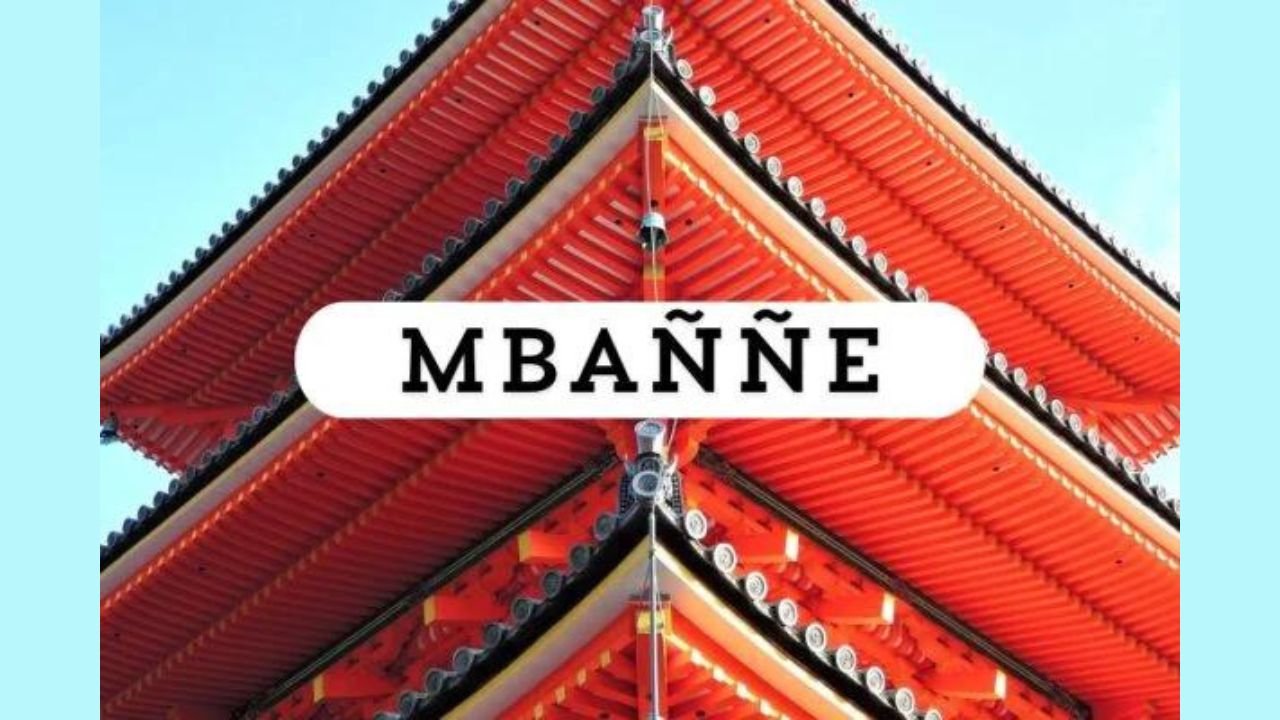Though many may not be familiar with the phrase, mbaññe is becoming more and more popular in different areas. Whether you’ve heard about Mbaññe before or are just curious, this article will provide you a comprehensive grasp of the subject. We’ll delve into its definition, history, uses, and much more. You will have a clear knowledge of Mbaññe and its significance at the end of this article.
What Is Mbaññe?
Mbaññe isn’t a word you’re likely to find in traditional dictionaries, and that might be why you’re here looking for answers. So, what exactly is Mbaññe?
Meaning of Mbaññe
The term “Mbaññe” could be seen as a concept, a cultural term, or even something that represents a particular idea or movement. Without a concrete definition, Mbaññe might mean different things in different contexts, which makes it all the more intriguing.
The Cultural Context of Mbaññe
If Mbaññe has roots in a particular culture, it’s essential to understand that culture to fully grasp the term’s meaning. Cultural terms often carry a depth that can’t be fully understood without knowing the customs, traditions, and values of the people who use them.
- Origins: Mbaññe might have originated from a specific region or ethnic group, carrying unique significance to those people.
- Cultural Significance: It might represent a tradition, a belief system, or even a social norm within that culture.
Applications of Mbaññe
Mbaññe could be applied in various ways, depending on its meaning in different contexts. Here are some possibilities:
- In Language: It could be a slang term, an idiom, or a phrase used in everyday conversation.
- In Art: Mbaññe might be represented in visual art, literature, music, or dance, conveying specific emotions or messages.
- In Social Movements: If Mbaññe is related to a cause or movement, it might symbolize unity, resistance, or another powerful concept.
How Mbaññe is Used Today
Mbaññe might have evolved over time, and its current usage could differ from its original meaning. Understanding how it’s used today will give you insight into its relevance and importance in contemporary society.
- Modern Interpretations: How do people interpret Mbaññe in the modern world?
- Popular Culture: Has Mbaññe entered mainstream culture? If so, how is it represented in media, entertainment, or public discourse?
- Social Media Influence: Social media platforms often shape how terms like Mbaññe are understood and used. What role does social media play in spreading or changing the meaning of Mbaññe?
The Importance of Mbaññe
Why should you care about Mbaññe? Whether you’re a linguist, a cultural enthusiast, or simply curious, understanding Mbaññe could open doors to new perspectives.
Linguistic Significance
If Mbaññe is a word or phrase, it might hold linguistic value, offering insights into language development, regional dialects, or even the evolution of communication.
- Language Evolution: How has Mbaññe influenced or been influenced by the languages it’s associated with?
- Regional Variations: Are there different versions of Mbaññe in different regions? How do they compare?
Cultural Impact
If Mbaññe is more than just a word—if it’s part of a cultural identity—then understanding it could lead to a deeper appreciation of that culture.
- Cultural Identity: How does Mbaññe reflect the identity of the people who use it?
- Traditions and Customs: What traditions or customs are linked to Mbaññe? How do they shape the lives of those who observe them?
Social Relevance
If Mbaññe is connected to social movements or current events, its relevance might be tied to ongoing issues or challenges.
- Activism: Is Mbaññe part of a larger social movement? If so, what are the goals of that movement?
- Community Building: How does Mbaññe bring people together? What role does it play in fostering community spirit or solidarity?
How to Incorporate Mbaññe into Your Life
If Mbaññe has captured your interest, you might wonder how you can incorporate it into your life. Here are some ideas:
Embrace the Concept
If Mbaññe represents a concept or idea that resonates with you, consider how you can make it a part of your daily life.
- Personal Philosophy: Does Mbaññe align with your values or beliefs? How can you apply it to your personal philosophy?
- Mindfulness and Awareness: If Mbaññe involves a specific mindset or attitude, practice mindfulness to integrate it into your thought processes.
Explore the Culture
If Mbaññe is rooted in a particular culture, take the time to learn more about that culture. This might involve:
- Travel: Visiting the region where Mbaññe is most prevalent could offer firsthand insights.
- Cultural Exchange: Engage with people from that culture to better understand Mbaññe and its significance.
- Learning the Language: If Mbaññe is tied to a specific language, learning that language might help you fully grasp the term.
Engage with the Community
If Mbaññe is part of a social movement or community, consider getting involved.
- Join Discussions: Participate in online forums, social media groups, or local meetups where Mbaññe is discussed.
- Support the Cause: If Mbaññe is linked to activism or social justice, consider supporting the cause through donations, volunteering, or advocacy.
The Future of Mbaññe
Mbaññe might be a term that’s still evolving, and its future could hold even more significance. Let’s explore what the future might look like for Mbaññe.
Potential Growth
As Mbaññe gains more attention, it might spread to new regions, cultures, or communities.
- Global Influence: Could Mbaññe become a global phenomenon? What would that look like?
- Adoption by New Generations: How might younger generations embrace or redefine Mbaññe?
Challenges and Controversies
As with any term or concept, Mbaññe might face challenges or controversies.
- Misinterpretation: If Mbaññe spreads, could it be misunderstood or misused? What are the risks?
- Cultural Appropriation: If Mbaññe is tied to a specific culture, there’s a risk of cultural appropriation. How can this be avoided?
The Role of Technology
Technology could play a significant role in shaping the future of Mbaññe.
- Digital Platforms: Social media, blogs, and online communities might influence how Mbaññe is understood and used.
- AI and Language Processing: How might AI tools interpret or even alter the meaning of Mbaññe?
You May Also Like: Şeygo: An Comprehensive and Ultimate Guide
Conclusion
The term “mbaññe” is intriguing and has a lot of potential, meaning, and significance. Knowing more about Mbaññe may expand your horizons and improve your knowledge, regardless of whether you’re interested in learning about it out of curiosity or because it has personal meaning for you. Mbaññe is an important term to understand, both for its historical significance and its contemporary uses.
FAQS
What is Mbaññe?
Mbaññe is a traditional cultural practice with deep roots in a specific community. It involves rituals, ceremonies, and symbolic elements that celebrate important life events such as birth, marriage, and death. Mbaññe is a way for people to connect with their ancestors, preserve their cultural heritage, and reinforce social bonds within the community.
What is the significance of Mbaññe in modern society?
Mbaññe remains highly significant in modern society as it helps preserve cultural identity and tradition. Despite the challenges of globalization and social change, Mbaññe continues to be practiced by communities both in their place of origin and in diaspora. It serves as a way for people to stay connected to their roots and maintain their cultural heritage, even in new environments.
How is Mbaññe practiced today?
Mbaññe is practiced through various rituals and ceremonies that involve music, dance, and the use of symbolic objects. While the core practices remain the same, modern adaptations have emerged, especially in diaspora communities. Technology has also played a role, with digital archiving, social media sharing, and virtual participation allowing the tradition to thrive in the digital age.
What are the key elements of Mbaññe rituals?
The key elements of Mbaññe rituals include music, dance, and symbolic objects. Music often tells stories of the community’s history, while dance movements represent aspects of life such as birth and rebirth. Symbolic objects, often handcrafted, hold significant meaning and are used to connect with the spiritual world, particularly the spirits of ancestors.
How has Mbaññe evolved over time?
Mbaññe has evolved by adapting to changes in society and technology. While the core principles of the tradition have remained intact, modern influences have led to new practices, especially in diaspora communities. Technology has also played a role in preserving and sharing the tradition, ensuring its survival and continued relevance in the modern world.











